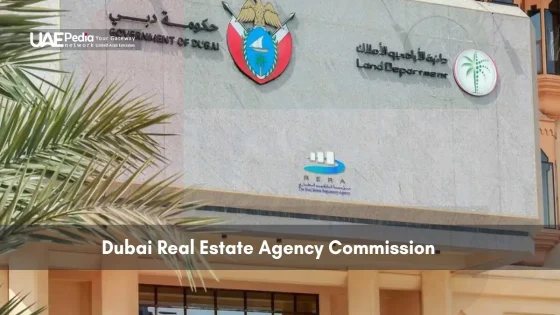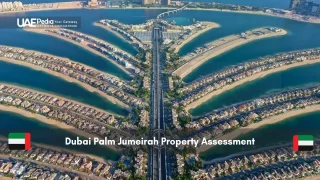Did you know that agent fees for securing your dream home in Dubai can range from 2% to 10%—depending on the deal? This sliding scale often catches newcomers off guard in a market where skyscrapers meet sand dunes.
These fees, typically calculated as a percentage of a property’s value or annual rent, act as the invisible glue connecting buyers, sellers, and professionals. Whether you’re eyeing a sleek downtown apartment or a villa near the Palm, how these costs work shapes your entire transaction experience.
We’ve seen firsthand how clarity here builds confidence. For sales, fees usually hover around 2%, while rentals often land at 5% of the yearly lease. Commercial spaces? Those percentages shift like desert sands. Our friends at Bayut break down the math in their detailed guide—essential reading before signing any papers.
Let’s walk through this together:
- Fees vary by property type: residential, commercial, or off-plan
- Percentage-based structures keep costs tied to market values
- Transparent agreements prevent surprises at closing
Overview of Real Estate Commissions in Dubai
Imagine walking into a souk where every price tag comes with a trusted guide—that’s how modern property fees work here. Local regulations ensure professionals follow clear frameworks, making transactions feel less like haggling and more like collaborative planning.
Understanding the Buyer’s Guide Approach
Think of commission structures as recipe cards: standardized formulas with room for personal tweaks. For sales, 2% of the purchase price typically goes to the brokerage. Rentals? Five percent of the annual lease gets split between involved parties. These aren’t random numbers—they’re rooted in RERA’s playbook for fair dealings.
Key Industry Insights and Market Trends
Last quarter saw a 12% spike in off-plan purchases, yet commission norms held steady. Why? Predictable fees create stability even when inventory shifts. Sellers gain negotiating power knowing 85% of agents use sliding scales for luxury properties. As one broker told us: “Clarity turns ‘What’s the catch?’ into ‘Let’s proceed.’”
The Role of a Real Estate Agent in Dubai Transactions
Picture this: a property pro who’s part negotiator, part market whisperer, and full-time deal architect. These professionals don’t just open doors—they decode complex paperwork, sniff out hidden value, and turn “maybe” into “sold.” Their toolkit? Local know-how, sharp negotiation tactics, and a sixth sense for matching spaces with lifestyles.
Essential Responsibilities and Expertise
Agents wear many hats. They start by analyzing market trends to price properties accurately—too high scares buyers, too low leaves money on the table. Next comes staging: virtual tours that make empty rooms feel like home, social media campaigns targeting specific demographics, and open houses that highlight a property’s best angles.
But the real magic happens during negotiations. Top brokers balance seller expectations with buyer budgets, often bridging gaps through creative solutions. One veteran shared: “Closing a deal isn’t about winning—it’s crafting terms where everyone feels heard.”
Behind the scenes, commission splits fuel these efforts. While agencies typically take 30-50% of fees, star performers keep up to 70%. This rewards those who consistently deliver results, whether working solo or collaborating with multiple agents on high-stakes deals. Think of it as teamwork with bonuses—shared efforts mean shared success.
How dubai real estate agency commission Impacts Buyers and Sellers
A coffee chat with a local broker revealed something surprising: fee percentages can make or break a deal’s success. Let’s unpack how these costs ripple through transactions.
The Math Behind the Scenes
Commissions work like invisible threads connecting sale prices to service fees. For a AED 2 million apartment sale:
| Component | Residential | Commercial |
|---|---|---|
| Base Rate | 2% | 3-5% |
| VAT (5%) | AED 2,000 | AED 7,500-12,500 |
| Total Fee | AED 42,000 | AED 157,500-262,500 |
This table shows why commercial deals need extra scrutiny. A 1% rate difference on large properties creates significant cost gaps.
Real-World Scenarios
Consider two recent transactions:
Case 1: A JBR studio sold for AED 1.8M with 2% fees. The seller netted AED 1.764M after deductions.
Case 2: A DIFC office space leased at AED 500K yearly. The 5% broker fee (AED 25K) came from the landlord’s pocket.
One tenant told us: “We almost walked away until the broker explained the fee split—transparency kept us at the table.” Clear communication turns potential conflicts into collaborative solutions.
Standard Commission Rates for Property Sales and Rentals in Dubai
Navigating property fees here feels like unlocking a desert treasure map—each marker reveals clearer paths to fair deals. Let’s chart the terrain between sales and rentals.
Rates in Residential vs. Commercial Transactions
Residential sales anchor at 2% across most neighborhoods. Picture selling a AED 1.5M downtown apartment: the service fee totals AED 30,000. Rentals? Landlords typically pay 5% of the annual rent—AED 5,000 on a AED 100K lease.
| Transaction Type | Sales Commission | Rental Commission | Example |
|---|---|---|---|
| Residential | 2% | 5% of annual rent | AED 1.5M sale = AED 30K fee |
| Commercial | 3-5% | 5-10% of annual rent | AED 5M sale = AED 150K-250K fee |
Off-plan projects dance to a different beat. Brokers often charge 5-8% here, rewarding their role in marketing new developments. A recent detailed breakdown shows how beachfront towers might command higher percentages than suburban townhouses.
Why the variance? Three factors steer the numbers:
- Luxury villas vs. standard apartments
- Prime locations versus emerging areas
- Brokerage reputation and service scope
One seller shared: “Our broker earned every dirham—they staged viewings like red-carpet events and negotiated like chess masters.” Value isn’t just about percentages—it’s the expertise behind them.
Determining Who Pays the Commission in Dubai Transactions
Picture a marketplace where payment duties shift like desert winds—that’s fee responsibility here. While tradition often guides who covers costs, smart negotiations can rewrite the rules. Let’s explore how this dance unfolds between buyers and sellers.
Buyer’s Responsibilities and Norms
In most sales, buyers shoulder the service fee—think of it like splitting a check at a trendy café. Residential purchases typically require 2% of the price paid at closing. Renters? They usually avoid direct fees since landlords cover the 5% agent charge from their annual income.
| Transaction Type | Buyer Pays | Seller Pays | Example |
|---|---|---|---|
| Apartment Purchase | 2% of price | 0% | AED 2M sale = AED 40K fee |
| Villa Rental | 0% | 5% of annual rent | AED 200K lease = AED 10K fee |
| Commercial Lease | 0% | 5-10% of rent | AED 1M office = AED 50K-100K fee |
Seller’s Contributions and Negotiation Tactics
Sellers often sweeten deals by covering marketing costs—professional photos, virtual tours, or even staging services. One broker shared: “Offering to split fees can make listings stand out in crowded markets.” We’ve seen villa owners attract multiple agents by covering 1% commission upfront.
Negotiation power spikes when properties have unique features. A recent Palm Jumeirah penthouse deal shifted 0.5% fee responsibility to the buyer through creative contract terms. Always clarify these arrangements early—a client nearly lost their dream home until we spotted unclear fee language in the initial offer.
Three tips for smooth transactions:
- Discuss payment structures during first meetings
- Document all agreements in writing
- Review contracts with legal professionals
Factors that Influence Commission Rates in the UAE Market
Ever wonder why two identical-looking properties carry different service fees? The answer lies in a dynamic mix of variables—like a secret recipe shaping every transaction. Let’s crack the code behind what moves the needle on these costs.
Impact of Property Type and Market Conditions
Location acts as the first domino. A beachfront villa in Jumeirah might command higher fees than a similar-sized home in Dubailand. Why? Prime areas require specialized marketing strategies and attract competitive buyers—efforts that justify adjusted percentages.
Market trends play tag with fees too. During high-demand periods, agents might accept lower rates to secure listings. But in slower markets? They’ll often negotiate harder to maintain earnings. One broker explained: “It’s like adjusting sails—we trim percentages based on which way the economic winds blow.”
| Scenario | Fee Range | Key Drivers |
|---|---|---|
| Luxury penthouse sale | 2.5-3% | Custom marketing, global buyer outreach |
| Standard apartment rental | 5% fixed | High inventory, faster turnover |
| Off-plan commercial unit | 6-8% | Longer sales cycles, developer partnerships |
Property value adds another layer. High-ticket deals often see flexible rates—a 1.5% fee on a AED 20M mansion still yields AED 300,000. Meanwhile, affordable homes might stick to standard percentages to keep agents motivated.
Three quick tips for navigating these variables:
- Compare recent fee structures for similar properties
- Ask agents how they adjust rates during market shifts
- Factor in service scope—some fees include staging and legal checks
Legal Regulations and Dubai Land Department Insights
Think of Dubai’s property rules as a compass—always pointing toward fairness. The city’s legal system ensures every deal stays transparent, from beachfront villas to downtown offices. Two guardians watch over this process: RERA and the Dubai Land Department.
RERA’s Rulebook for Fair Play
RERA acts like a referee in property deals. Their guidelines require brokers to:
- Disclose fees upfront in written agreements
- Cap residential sales commissions at 2%
- Provide No Objection Certificates for valid transactions
A broker shared: “We can’t even discuss fees without signed paperwork—it protects everyone involved.” These rules prevent surprise charges and keep negotiations above board.
Paperwork That Protects Your Interests
The Dubai Land Department double-checks every transaction. Their team reviews contracts to ensure:
| Checkpoint | RERA Focus | DLD Focus |
|---|---|---|
| Fee Disclosure | Agent compliance | Document accuracy |
| Payment Terms | Percentage caps | Tax calculations |
| Dispute Resolution | Broker conduct | Legal enforcement |
Smart clients always request three documents:
- Brokerage registration proof
- Commission agreement with breakdown
- DLD transaction receipt
One investor learned this the hard way: “Our agent skipped the NOC—delayed the deal by six weeks.” Proper paperwork turns potential headaches into smooth handovers.
Negotiating Commission Fees and Maximizing Value
Let’s unpack moves that keep everyone smiling while trimming costs. Think of fee talks as collaborative puzzles—each piece representing value, market dynamics, and mutual goals.
Effective Strategies for Buyers and Sellers
Seasoned negotiators start by researching recent deals. A villa seller last month saved 0.5% by offering to handle professional photography. Buyers? Compare multiple agents’ service packages—some include free valuations or legal checks.
| Tactic | Buyer Advantage | Seller Advantage |
|---|---|---|
| Service Bundling | Request property management add-ons | Offer staging for faster sale |
| Market Timing | Push for lower rates in slow seasons | Lock in fixed fees during peak demand |
| Multi-Agent Pitches | Get competing proposals | Spark broker competition |
One broker shared: “Clients who ask ‘What’s flexible here?’ often gain extras like extended warranty consultations.” Transparency builds trust—discuss fee structures before touring properties.
Smart players use market shifts as leverage. When inventory rises, agents might accept reduced percentages to secure listings. Always document agreed terms. A recent deal nearly collapsed because verbal promises about fee splits weren’t written down.
Three quick reminders:
- Align payment timelines with milestones
- Benchmark rates against recent comparable deals
- Confirm which services VAT covers
Additional Costs, Fees and Their Effects on the Transaction
Think of property deals as layered desserts—each sweet bite comes with hidden textures. Beyond the base commission, extra charges like VAT and registration fees quietly reshape your final costs. Let’s unpack these often-overlooked ingredients.
Understanding VAT, DLD Fees, and Other Charges
Every transaction here carries three main add-ons:
- VAT (5%): Applied to agent commissions and some services
- DLD Fees: 4% of purchase price for sales, AED 1,000+ for rentals
- Mortgage Registration: 0.25% of loan amount plus AED 290 admin fee
These layers stack differently across deal types. A AED 2M home sale might look like this:
| Component | Sales | Rental (AED 100K/year) |
|---|---|---|
| Commission | 2% (AED 40,000) | 5% (AED 5,000) |
| VAT | AED 2,000 | AED 250 |
| DLD Fee | AED 80,000 | AED 1,000 |
| Total Extra | AED 82,000 | AED 1,250 |
One buyer shared: “We budgeted AED 40K—the extra AED 82K nearly derailed our plans.” Always ask agents for a full fee breakdown during initial talks.
Rentals sneak in smaller but frequent surprises. That AED 100K lease? The 5% commission becomes AED 6,250 with added fees. Pro tip: Check the land department’s latest fee calculator before signing—their portal updates rates monthly.
Final Reflections on Successfully Navigating the Dubai Property Market
Mastering the art of property deals here feels like solving a vibrant puzzle—every piece clicks when you know the rules. We’ve walked through fee structures, negotiation tactics, and legal safeguards that turn complex transactions into clear paths forward.
Remember: understanding percentages isn’t just math—it’s strategy. Whether you’re a buyer eyeing that sleek apartment or a seller prepping a villa, aligning with skilled professionals makes all the difference. Our chats with brokers revealed one truth: “Great deals happen when both parties feel informed.”
Keep these takeaways handy:
- Review fee breakdowns early—VAT and registration costs add up fast
- Leverage market trends to negotiate win-win terms
- Always verify brokerage credentials and DLD paperwork
With the right guidance, you’ll navigate this dynamic landscape like a pro. Ready to turn insights into action? Bookmark our latest market updates and step into your next deal with confidence—you’ve got the playbook.
Typically, agents charge 2% of the sale price for residential deals. Commercial transactions often range between 3-5%, depending on complexity. These rates align with RERA guidelines but can vary slightly between brokerage firms.
Sellers generally cover the brokerage fee in sales deals, while landlords pay for rental agreements. Buyers and tenants rarely contribute unless negotiated otherwise—a tactic sometimes used in competitive markets to secure sought-after properties.
Absolutely! While rates have industry norms, factors like property value, repeat business, or exclusive listings create room for discussion. Always request a formal agreement outlining services to ensure transparency.
Yes—the Dubai Land Department enforces RERA regulations, which standardize fees and prevent overcharging. Agents must register contracts through the DLD portal, ensuring compliance and protecting both buyers and sellers.
Budget for DLD registration fees (4% of sale price + AED 580), VAT (5% on commissions), and potential admin charges. Reputable agents disclose these upfront, so ask for a full breakdown before signing.
If two brokers collaborate (e.g., one represents the buyer, another the seller), fees are usually split 50/50. Clear dual agency agreements prevent disputes—always confirm roles in writing to avoid double charges.
Yes—holiday homes or serviced apartments often use a 10-15% management fee instead of traditional rates. Platforms like Airbnb may charge hosts 3-5% per booking, so compare models based on your rental goals.



















